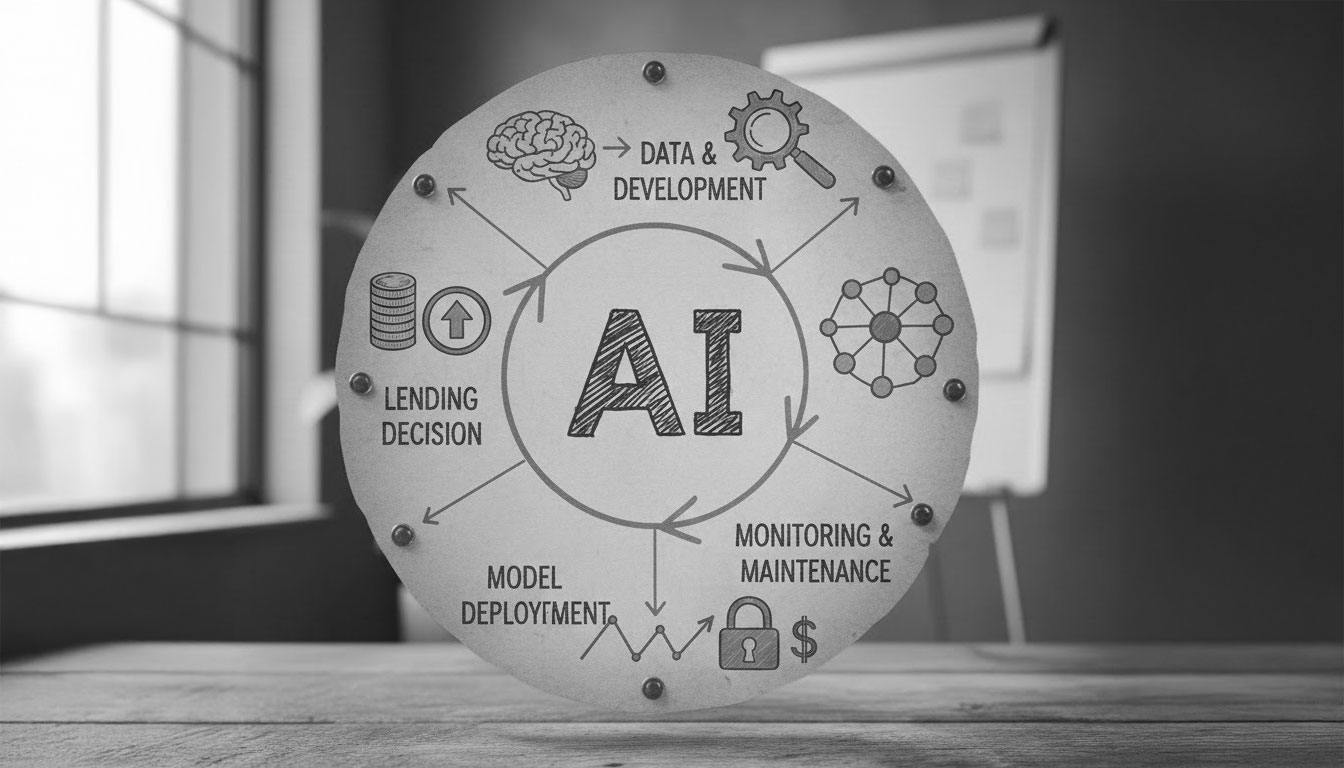
May 5, 2025
From Chatbots to Coworkers: Why AI Agents Are the Next Big Shift in Equipment Leasing

Artificial Intelligence (AI) has significantly evolved from basic conversational assistants to sophisticated AI agents capable of autonomously managing complex tasks. This emerging shift is beginning to redefine operational efficiency within the equipment leasing industry, especially as early adopters demonstrate real business value.
What Are AI Agents and Why Do They Matter Now?
AI Agents are a new generation of intelligent software—autonomous programs that don’t just respond to instructions, but actively work toward achieving goals. Unlike traditional chatbots, which follow pre-programmed scripts, AI Agents can interpret a user’s objective, break it into actionable steps, and carry out those steps across different digital systems without ongoing human supervision.
They are powered by advanced large language models (LLMs), which allow them to understand context, plan actions, use memory, connect with APIs and external tools, and adapt in real time. This makes them capable of solving complex problems, learning from experience, and acting with a level of flexibility that was previously unimaginable in enterprise automation.
How Did We Get Here? A Timeline of AI Agent Evolution
The recent surge of interest in AI agents during 2024 and 2025 reflects a broader shift in how enterprises—especially in sectors like equipment leasing—are automating work. AI agents have moved beyond experimental prototypes and into real-world applications, gaining traction across underwriting, portfolio management, customer service, and financial workflows.
This article explores that shift in depth, outlining how AI agents are already transforming core leasing operations and what’s next as the technology matures.
However, AI Agents did not emerge in a vacuum—they were made possible by key advances in artificial intelligence, particularly the development of large language models (LLMs). The launch of ChatGPT in 2022 marked a pivotal turning point: it introduced the world to LLMs that could understand, reason, and generate coherent language outputs. However, ChatGPT itself is not an AI agent as it responds to prompts but lacks autonomy, memory, and decision-making capabilities.
The AI Agents we see today build on that foundation. They use LLMs as a cognitive core but go beyond: they can call external tools, remember past interactions, decompose goals into subtasks, and operate independently. In this sense, ChatGPT was the catalyst that made AI Agents viable—unlocking the underlying language understanding and reasoning needed to drive autonomous action.

How Do AI Agents Differ from Chatbots and Workflows?
The rise of AI Agents has generated some confusion in the marketplace—especially when distinguishing them from traditional chatbots or predefined workflows. While all three can perform digital tasks, they differ significantly in autonomy, reasoning, and adaptability.
To clarify these differences, the following table compares their core functionalities:

From Theory to Reality: Where AI Agents Are Already Making an Impact
While some AI agent capabilities—like lead generation or basic document analysis—are already in use within leasing organizations, others, such as fully autonomous sales workflows, are emerging. Adoption varies by company maturity and investment in digital infrastructure. Below is a breakdown comparing current and near-future uses of AI agents against traditional chatbots in real leasing workflows:
- Advanced Risk Assessment and Credit Scoring:
- Autonomous predictive analytics and integration with external databases for rapid, precise decision-making.
- Operational Automation:
- Automated generation, review, and validation of legal documentation and comparative analyses.
- Proactive Portfolio and Contract Management:
- Continuous monitoring, early default detection, and automated corrective actions.
- Commercial Flow Optimization:
- Automated sales, lead generation, and personalized customer interactions via autonomous agents.
- Infrastructure and Technology Financing:
- Automated capital management for advanced technology projects, such as data centers and cloud computing infrastructure.

Let’s take a closer look at how a few of these use cases work in practice:
· AI-Driven Credit Scoring: Rather than using static scoring rules, an AI agent can access external APIs (e.g., credit bureaus, bank statements), decompose the analysis into subtasks, and synthesize the data into a decision—often in real time.
· Tenant and Client Communication at Scale: In equipment leasing, managing lessee interactions—such as servicing existing accounts, answering asset-related inquiries, or providing contract updates—can become time-intensive. AI agents streamline these communications by automating replies, referencing contract data, and maintaining conversation history across portfolios.
· Collections Prioritization and Deal Recovery: AI agents can assist collections teams in identifying and prioritizing overdue accounts based on recovery likelihood, customer history, and financial exposure. Rather than using rigid criteria, agents continuously analyze account data to recommend which deals to escalate, automate, or route to human agents—enhancing both speed and recovery rates.
- Document Validation: AI agents can now help verify lien positions and filings with greater consistency than manual review, reducing legal risk.
- Lead Generation and Sales Automation: While still emerging, agents can already query multiple prospecting platforms (e.g., LinkedIn, industry databases), qualify leads based on leasing criteria, and pass them to sales reps with enriched data.
- Portfolio Oversight: Agents can monitor payment activity, contract terms, and flag risk signals autonomously—triggering alerts or even initiating outreach sequences.
By adopting AI agents, equipment leasing companies can shift from reactive operations to predictive, self-optimizing systems—unlocking faster cycle times, lower costs, and better customer outcomes.
Conclusion: Why AI Agents Are the Logical Next Step
Chatbots have been present in the equipment finance industry for over a decade, assisting with FAQs, document requests, and basic triage. But just as ChatGPT ushered in a new era of language understanding, AI agents represent the next technological leap—adding memory, planning, and autonomous execution to the mix.
In today’s fast-paced digital economy, where decision windows are short and complexity is high, AI agents outperform chatbots in speed, adaptability, and contextual intelligence. Their ability to independently access data sources, collaborate across tools, and deliver consistent, high-precision results gives them a clear operational advantage.
And they’re already working. One standout example is Wolters Kluwer’s Borrower Analytics AI, while not a full-fledged AI agent, exemplifies how specialized AI tools can be integrated into broader autonomous workflows, enhancing legal accuracy and reducing risk in equipment leasing which has helped lenders ensure lien perfection and reduce legal inconsistencies in UCC filings—resulting in more secure positions in bankruptcy proceedings. This isn’t hypothetical automation—it’s value being delivered today.
Concerns about AI replacing jobs are valid, but the historical precedent is clear: automation shifts roles rather than eliminating them outright. AI agents free human teams from repetitive tasks, enabling staff to focus on higher-value activities like relationship building, strategic planning, and creative problem-solving.
In a world where speed and precision define competitive advantage, AI agents are not a futuristic concept—they’re the next logical step. For equipment finance companies aiming to modernize their tech stack and operations, the question is no longer if, but how fast they’ll adopt them. With major players like Zhipu launching free AI assistants and organizations like ELFA rolling out tools like ELFie to deliver real-time leasing insights, the agentic AI shift is already underway—and it’s accelerating fast.
If you’re unsure where to begin—and don’t want to be left behind as AI reshapes the industry—Kin Analytics steps in to convert bold automation concepts into concrete, measurable outcomes. From tightening collections and deepening customer engagement to refining underwriting, we deliver agent-driven solutions calibrated to your specific workflows, systems, and data maturity.
The urgency is clear: the AI market already exceeds $620 billion and is projected to soar past $2.7 trillion by 2032. Analysts estimate AI could add about $15.7 trillion to global GDP by 2030, and businesses are taking notice—83 % now rank AI as a top competitive priority, with 78 % already using it in at least one business function. Partner with Kin Analytics to convert those market-shifting numbers into your competitive edge.
Sources:
· https://convin.ai/blog/commercial-leasing-agents
· https://equipmentfinancenews.com/news/lender-operations/ai-agents-transforming-equipment-finance/
· https://www.getdefigo.com/resources/ai-leasing-agents-everything-you-need-to-know



.webp)

